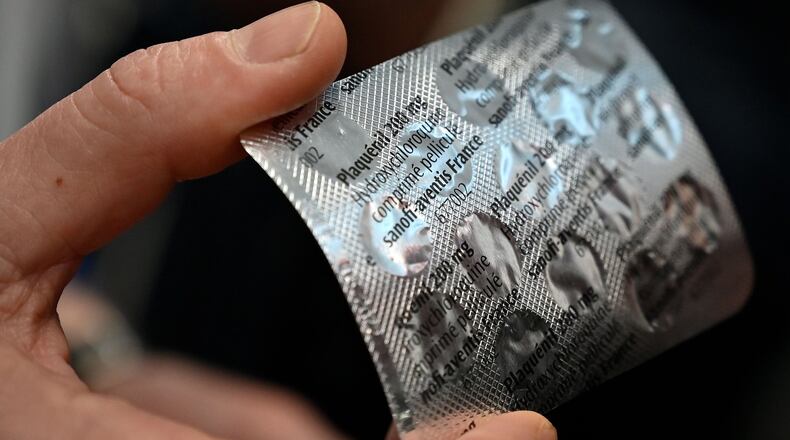Georgia officials say a pharmaceutical firm donated 200,000 doses of a medicine used to treat malaria and autoimmune diseases that President Donald Trump has aggressively promoted to fight COVID-19 even though it has yet to be proven safe for that use.
U.S. Rep. Doug Collins said Tuesday that generic drug manufacturer Amneal Pharmaceuticals contributed the doses of hydroxychloroquine to the state Department of Public Health for potential use in treating Georgians hospitalized by the disease.
In a statement, Collins said Georgia is one of the first states to receive a donation from the New Jersey-based company. Others include Louisiana, New York and Texas.
Gov. Brian Kemp’s administration did not immediately respond to requests for comment about the development, though the state’s top health official has cast doubt about the efficacy of the drug to combat COVID-19, the disease caused by the coronavirus.
MORE: A map of coronavirus cases in Georgia
MORE: Real-time stats and the latest news on the coronavirus outbreak
MORE: What is hydroxychloroquine? Is it effective in treating coronavirus?
Trump has repeatedly touted hydroxychloroquine for use against the disease, which has killed hundreds of Georgians and sickened thousands more. But the drug, which is used to treat malaria, rheumatoid arthritis and lupus, has not been approved as a treatment for the coronavirus, and doctors have reported mixed outcomes.
Dr. Kathleen Toomey, the commissioner of the state Department of Community Health, recently wrote a letter to physicians cautioning them against putting too much emphasis on the drug and warning that it could result in a shortage for patients suffering from other illnesses who depend on it, Georgia Health News reported.
Federal health experts, including Dr. Anthony Fauci of the National Institutes of Health, recently said it shouldn’t be considered a “knockout drug.”
And Dr. Patrice Harris, the president of the American Medical Association, has said she would not prescribe the drug for a coronavirus patient because the risks of harmful side effects were “too significant to downplay” without more studies. Among those are irregular heart rhythms and other cardiac issues.
Dr. Darria Long, an Atlanta emergency room physician, said she worries that hydroxychloroquine has drawn attention from other promising therapies that still need to undergo rigorous clinical trials. Doctors, she added, must remain aware of potential side effects.
“This is something that we cannot treat blindly,” Long said. “We need to apply the exact same rigor of science that we use to treat COVID as we use to treat every other medical condition.”
Keep Reading
The Latest
Featured





